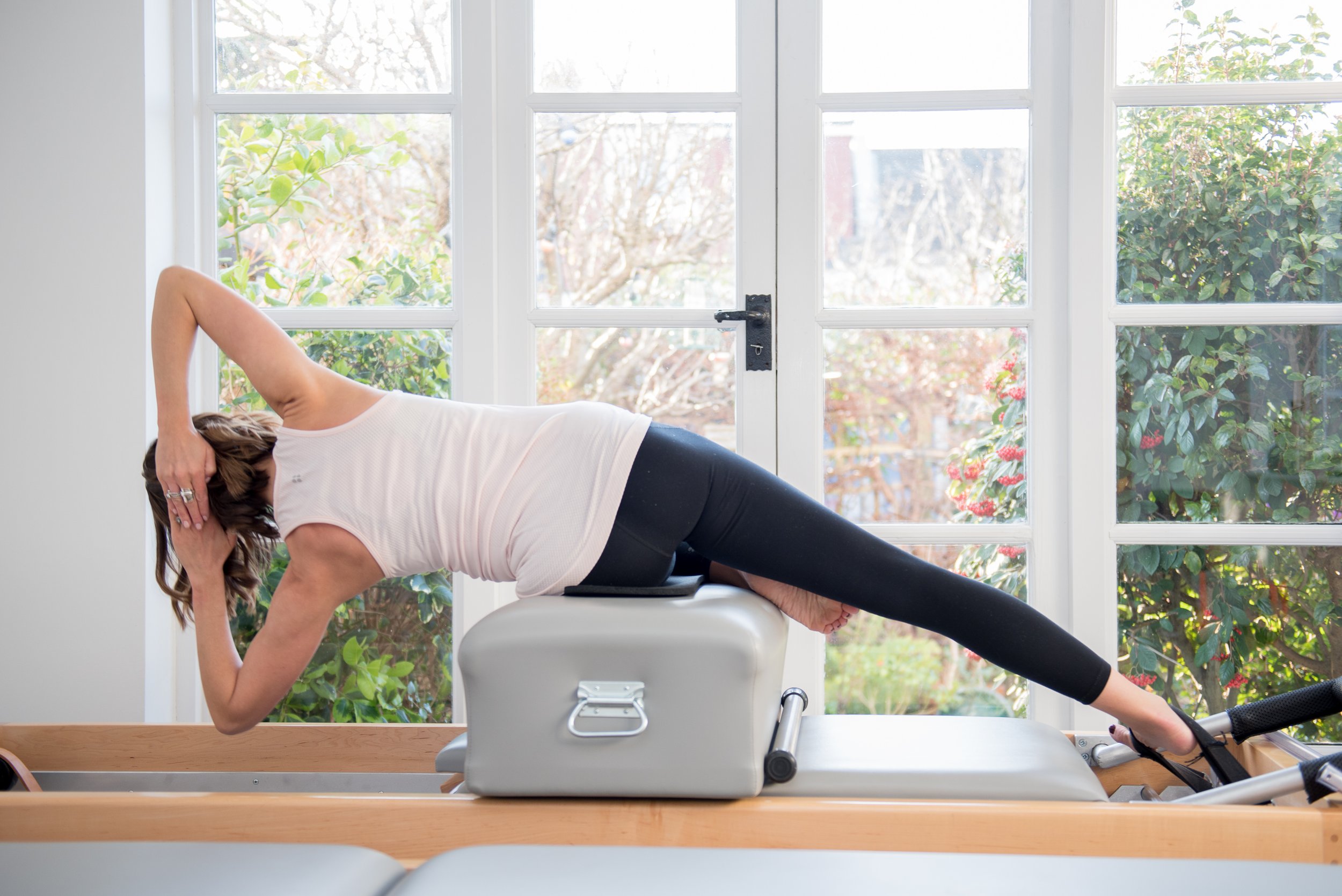Mat Pilates vs reformer Pilates: what should you know about the differences?
The notion of taking a Pilates class is something that many of us will have considered down the years.
Perhaps in your case, you might have heard great things about the benefits that Pilates can have for enhancing core strength, mobility, flexibility, balance, and muscle tone.
But Pilates can also seem to present many intimidating decisions for the newcomer – not least the question of whether they should be engaging in reformer or mat Pilates. So, how do these two methods differ, and what should guide your own choice?
Mat Pilates
As its name suggests, mat Pilates centres on mat-based exercises; when you take on a Pilates mat class, you can expect to be tested through a series of body-weight exercises such as the swan-dive, teaser, Hundred, roll-up, seal, crab, roll-over, and single-leg circle.
Such a range of routines can be great for working your legs, stomach, upper and lower back muscles – in short, bringing you many of the holistic benefits that are widely associated with Pilates.
In some ways, mat Pilates might seem to make great sense for a beginner, and in other ways, less so. Although it can be highly rewarding for novices due to how it requires the attendees of such classes to learn to control their muscles during exercises, they will not be able to count on springs and cables to support them.
In short, they really will be required to be in complete control of their body, given that it is their body weight that will provide resistance against gravity when they are on the mat.
But on the other hand, a great advantage of mat Pilates is that it can be done anywhere, including by those who do not have immediate access to specialised equipment.
Reformer Pilates
The reformer that is central to many people’s perceptions of Pilates is a contraption consisting of springs, gears, straps, and ropes. The sight of such a machine might intimidate an uninitiated newcomer, but the reformer actually provides support for the body, and is highly versatile, with the option to alter the resistance of the springs to change the intention or focus of the exercise.
Reformer Pilates is naturally a different experience to mat Pilates, there is added resistance and much more feedback available than on a mat. Some exercises, are the same on the reformer and on the mat, such as The Hundred. Each of these offer a different experience, but one informs the other.
So, whatever your level of capability – including if you are interested in Pilates due to how it could aid your recovery from injury, or if you have limited range of movement – you could be pleasantly surprised by the relevance and effectiveness of reformer Pilates.
A major benefit of this Pilates method is that the resistance the reformer’s spring and pulley system offers, coupled with its feedback can greatly expand the range of exercises you could try compared to mat Pilates, thereby giving you a lot of variety.
You can argue that reformer Pilates gives noticeable results sooner. I agree this to be the case, but the main reason for this I believe is because the feedback the reformer gives your body allows you to expand your Pilates vocabulary sooner because you are given more information from the apparatus. What I mean by this is that a client could come to a mat class and do the hundred and not quite understand the need to follow the cue ‘reach your arms’ until they are a little more experienced. One session on the reformer, you understand the importance of reaching your arms because the reformer gives your body the information back to reach your arms…if you don’t the carriage bounces and it feels wrong. So yes, the reformer is harder, it gives you more bang for your buck, but it is also easier than mat work in many ways.
Which of these methods of Pilates should you choose?
In many ways, it is best not to agonise over the wisdom of practising one form of Pilates over another, given that both can bring comparable benefits to most people.
While for certain groups – such as those recovering from injury – reformer Pilates is likely to be more ideal, both forms will enable you to build the strength in your body’s core that you will doubtless aspire to when you take up Pilates.
The key thing is to ensure you maintain regular practice, in addition to consistently adhering to the central principles of Pilates, so that you can be sure of gaining the best possible results.
Do you have any further questions as someone who may be seeking suitable reformer and/or mat Pilates classes in Brighton or online? If so, please do not hesitate to enquire today to Brighton Pilates, whether by phone or email. Perhaps you could join up to Brighton Pilates On Demand where you can get a 7 day free trial.
Follow and chat with Ellie on Instagram @brighton_pilates or email ellie@brightonpilates.co.uk


